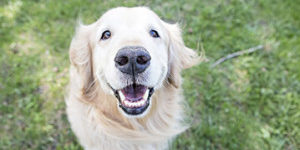What to expect if my pet needs surgery?


There are times in a pet’s life when anesthesia is needed, such as for spay or neuter surgery, or for a dental procedure. We take several precautions to make anesthesia as safe as possible.
We highly recommend pre-anesthetic blood work for all patients that are scheduled for surgery. Not all conditions are readily detected by physical exam alone. Pets that are 7 years and older are considered seniors and must have blood work done due to their higher anesthetic risks. We ask that you please schedule a technician appointment for this test anywhere from 2 days up to one month prior to surgery.
What should I do to prepare my pet for surgery?
Please take away your pet’s food by midnight the night before surgery. Water can be available until the time they leave home for the hospital.
What will happen on the day of my pet’s surgery?
• We will schedule an appointment to admit your pet to the hospital the morning of surgery. Please allow time to read and sign an authorization form.
• A pre-anesthetic injection will be given to relax your pet.
• An intravenous catheter will be placed after your pet is relaxed. A small area on your pet’s leg will be shaved for the IV catheter.
• An anesthetic medication will be administered to your pet. After that, an endotracheal tube will be placed in your pet’s throat so that oxygen and further anesthesia can be delivered to your pet’s lungs.
• IV fluids are administered for all surgeries other than cat neuters. This helps maintain blood pressure to support organ health and function as well as prevents dehydration.
• We will administer pain medication to keep your pet as comfortable as possible while they are undergoing surgery.
Your pet will be closely monitored during anesthesia.
A licensed veterinary technician will monitor your pet’s vital signs regularly throughout the procedure. Your pet’s heart rate, respiration, body temperature, blood oxygen levels and blood pressure will be monitored.
What should I expect after surgery?
• Pets typically begin waking up within minutes after surgery. Since sensitivities vary to anesthesia, some pets may continue to be more sedate or groggy than others for 24 hours.
• In some cases, your pet may be hospitalized overnight. We will keep you updated on your pet until they are ready to go home.
If you have any questions, our knowledgeable staff will be able to discuss them with you. We would also be happy to schedule a tour of the surgery suite to go over the process in more detail.
